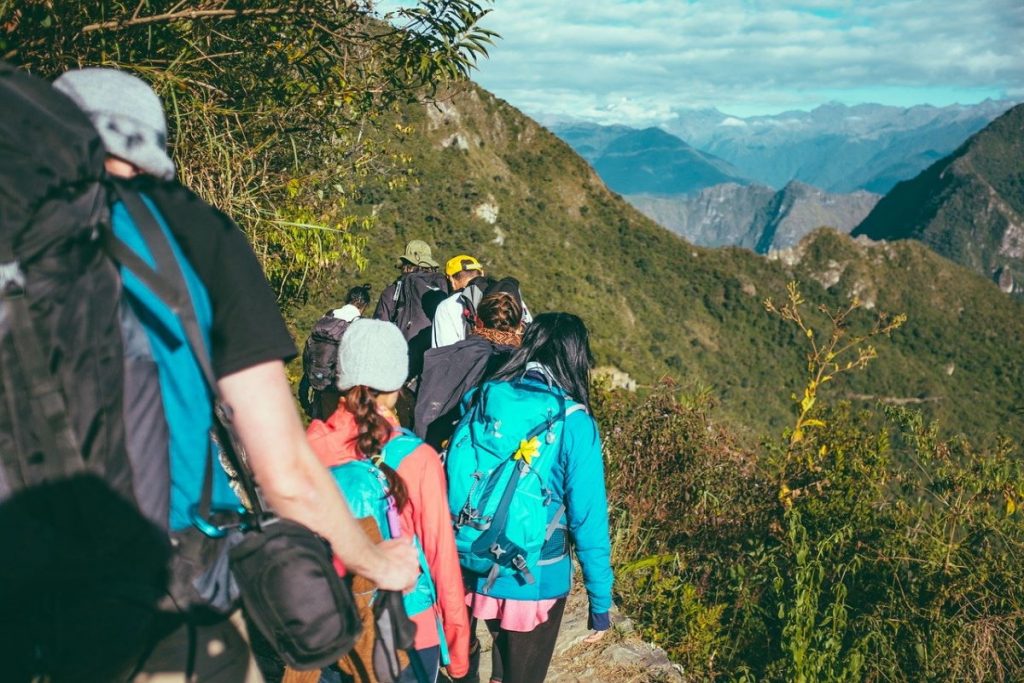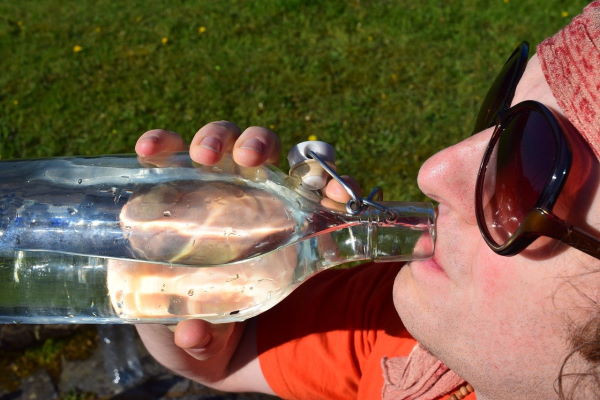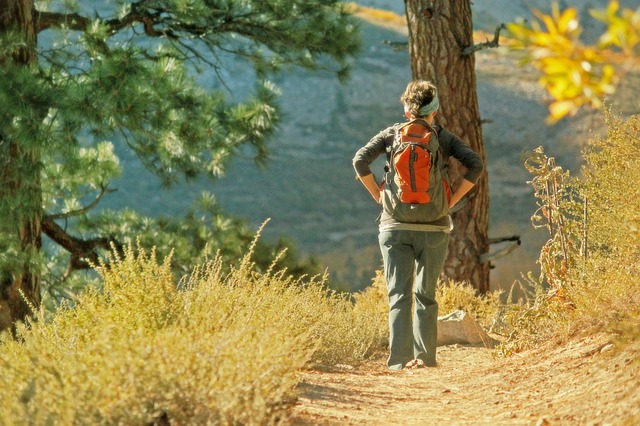Hiking is one of the most popular outdoor activities in the world. With proper planning, hiking can be fun and enjoyable. It provides you with an opportunity to see different terrains and landscapes while improving your overall health and fitness. However, hiking also poses some risks, depending on a hiker’s experience, season, route and destination. If you are planning to go for your first hike, here are some of the mistakes that you need to avoid.
Overpacking
Overpacking is probably one of the most common mistakes among beginner hikers. When you are going for your first hike, it’s easy to get carried away and find yourself hauling your entire wardrobe or kitchen on your back. However, you should never carry anything that you don’t need. After all, the whole point of spending time in the wilderness is to give up some of your daily luxuries. While there are some essential items that you should not leave behind, too many first-time hikers carry way too many items that they will never use during their hike. And this means that such items will just weigh your pack down unnecessarily. To avoid overpacking, make sure you go through your item list carefully. Check each item that you’ve listed down and then remove anything that appears that falls in the category of luxury items. For instance, instead of carrying your heavy-duty cooking pots, you just need to invest in a basic hiking cook set. Also, avoid moisture-laden foods as much as possible, since they will weigh you down, especially when you are in a hurry. Instead, opt for lighter foodstuffs like nuts and seeds, dried fruit, dehydrated meals, powdered milk, protein bars and instant oatmeal.
Poor Choice of Gear
Many amateur hikers rush to buy new gear, without considering how they will use it or whether it will be suitable for the type of hiking they intend to do. Whether it’s a sleeping tent, a waterproof jacket, trekking poles or a sleeping bag, it’s highly advisable to choose your gear for the hike that you have in mind. For instance, if you are planning a one-day or a two-day hike on flat terrain, then you might not need trekking poles after all. Also, don’t purchase gear based on the price tag, or the brand name. If you are purchasing a backpack, make sure it’s the right quality and size. Also, it should be easy to pack and unpack. When shopping for hiking gear, it’s highly advisable to go with an experienced hiker, who will guide you on how to choose the right items for the hike. Some specialist hiking shops also offer assistance when it comes to buying hiking gear. Therefore, don’t hesitate to ask a question, in case you are not sure about a certain item.
Underestimating the Hiking Challenge
A Search and rescue report published by the National Park Service shows that approximately 46,000 people required search and rescue between 2004 and 2014. Most of these cases were attributed to fatigue, poor route planning, insufficient gear as well as inexperience. Hikers underestimating the hiking challenge and overestimating their physical capabilities and hiking prowess account for a significant fraction of these search and rescue operations. For instance, a beginner might decide to tackle a moderately-rated trail, in an attempt to enhance their hiking skills. However, choosing a hiking trail that is beyond your capabilities is equal to courting trouble. If you want to improve your hiking skills, you need to start with shorter, easier trails and then tackle the challenging ones later on. You should not be pushing yourself to a point of exhaustion on your first day of hiking. Otherwise, you will end up feeling defeated and discouraged.
Failing to Stay Hydrated
And as you might probably know, staying well hydrated during a hike, will help the body to replace the fluids lost through sweat. Therefore, that 20 oz water bottle that you purchased on your way to the trailhead will not be enough for your entire hike. On the other hand, trying to carry all the water that you will need during the entire hike is not realistic. Therefore, you need to find a means of sanitizing the water that you will collect along the journey. For instance, you can carry purification tablets, bleach, or even a life straw. You can also boil your drinking water in the morning before you head off to the woods.
Failing to Check the Local Weather Reports
When you are planning to go for your first hike, your probably imagining clear blue skies, a day full of sunshine, and cool, light breezes, as you conquer those trails. Unfortunately, things don’t always go according to plan. As much as you will be hiking during the summer, it’s always advisable to check the weather reports, before you leave your house. The weather reports will show you the conditions that you can expect in your hiking destination. With that information, you can then choose your gear accordingly. You might also opt to postpone the trip if there is a high chance of snow, hail, rain or other extreme elements. However, you should always remember that weather forecasts and predictions are never 100% accurate. Therefore, always ensure you bring some emergency supplies, in case the weather takes a turn for the worst.
Failing to Rest
When you hit the trail for the first time, you might be tempted to put in hour after hour, in an attempt to prove your hiking prowess. However, it’s important to note that hiking is not a marathon or a running competition. You are out there to have fun with your friends and enjoy the beauty of nature. Therefore, make sure that your hiking trip has enough rest stops. For every hour that you hike, you should take 5-minute short breaks. These breaks will give your lungs and muscles a breather. Also, you can take this opportunity to refuel, so that your body has ample energy to continue with the journey. Your body should also give you an idea of when you need to take a rest. If you feel any pain, discomfort or too much fatigue, then there is no need to proceed with the journey. Just inform your colleagues how you are feeling and have some rest. You can then proceed with the journey once you’ve rested enough and your body has recovered.
Poor Footwear Selection
Hiking boots are an important part of your hiking gear. Unfortunately, most amateur hikers choose boots based on style, instead of functionality. Hiking with the wrong pair of boots might lead to blisters and ankle sprains, among other leg and foot problems. And if your legs and feet are painful, then you might even be forced to cancel the hike, leading to wasted time and money. If you are buying hiking boots for the first time, make sure you choose a design that aligns with the type of hiking you intend to do. For instance, if you intend to hike for a day or two during the summer, then you should go for lightweight hiking boots. Wearing 3-pound boots for a one-day hiking trip is an overkill.
Apart from the weight of the boots, make sure you choose the right fit for your feet. If you have to choose between style and comfort, you should always prioritize comfort. Once you’ve purchased your preferred pair of boots, you should spend some time breaking them in, before the day of the hike. Hiking with boots that are not properly broken in might lead to sore ankles and blisters – not to mention a miserable hiking trip. For your first hiking trip, just purchase an affordable, comfortable and lightweight pair of boots, which you can also use for other purposes. And if hiking is something that you would like to take up as your hobby, then you can, later on, invest in heavy-duty hiking boots.
Hiking Alone
As much as spending time in the wilderness by yourself sounds like a great idea, it’s not advisable to hike alone, especially if you are a beginner. And there are numerous reasons why you should avoid it by all means. First, you might come across some trails that are not well marked, which means you might end up getting lost in the wilderness. While you can use your phone’s GPS to map out your exact location, what happens when the phone runs out of power? It might also get dark when you are still trying to figure out where you are or where you are going. Second, you might be attacked by wild animals such as snakes. In such situations, it’s good to have someone else who can help you and call for emergency help. When you are walking in a group, the noise you make will scare away some wild animals, thus reducing the chances of an attack. Also, hiking alone can be boring. One of the best parts about trekking in the wilderness is sharing the spectacular and gorgeous views with someone else. If there is no one to share that excitement with, then your trip can be boring. Therefore, if you are planning to go for your first hike, don’t attempt to do it alone. Make sure you go as a group. The trip will be more enjoyable and there will be people to help you, in case something bad happens to you.
Closing Remarks
No one is born a seasoned hiker. Every hiker was new to backpacking at some point. Therefore, learning through your mistakes is part of life, and they should not stop you from taking action and achieving your backpacking goals. With time, you will master the basics of backpacking, the gear to invest in, how to keep safe and how to train properly.





0 comments